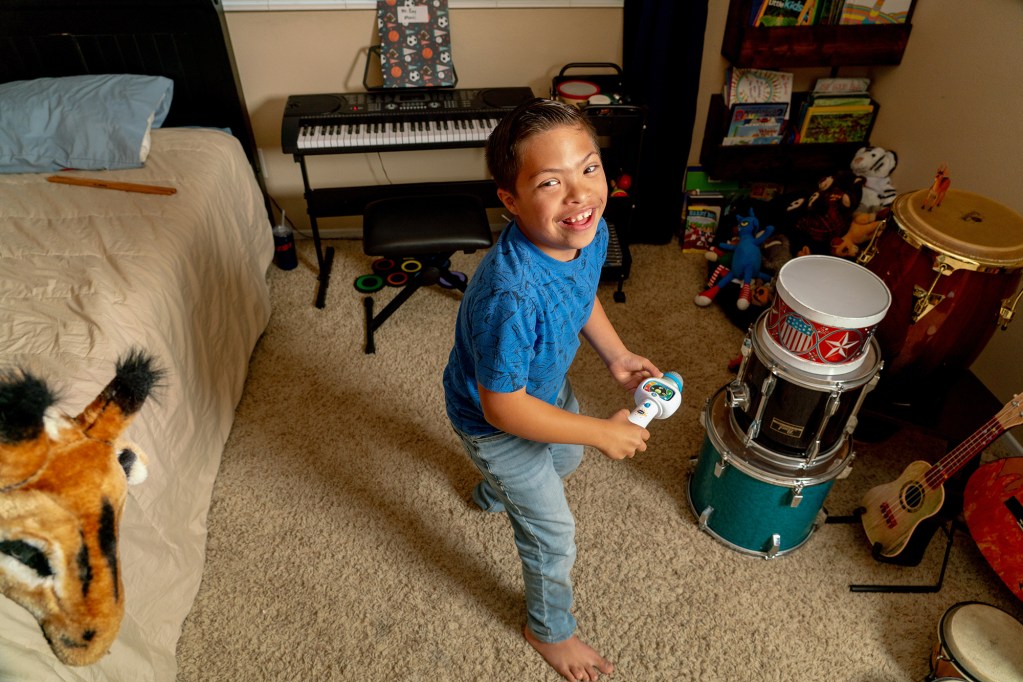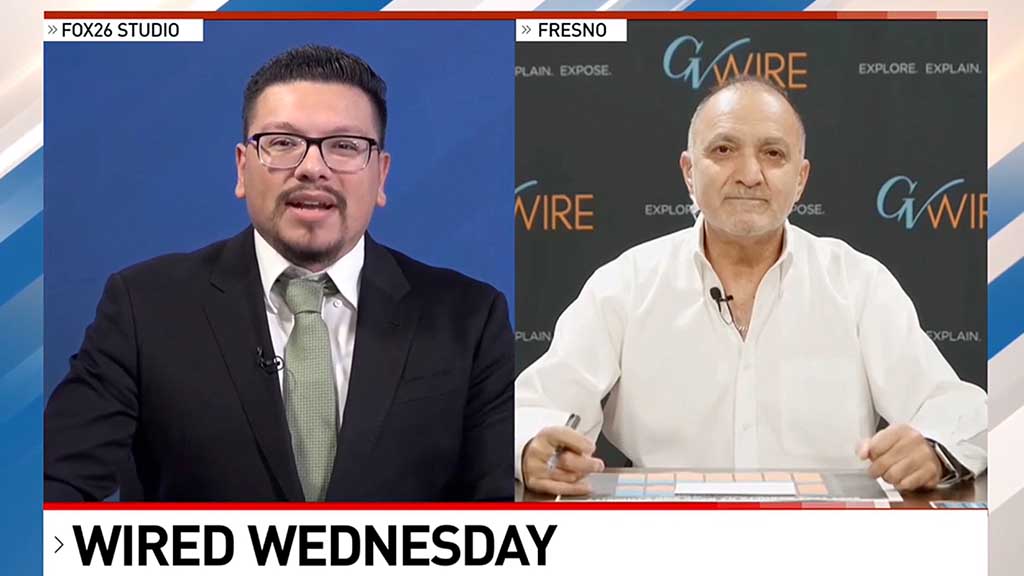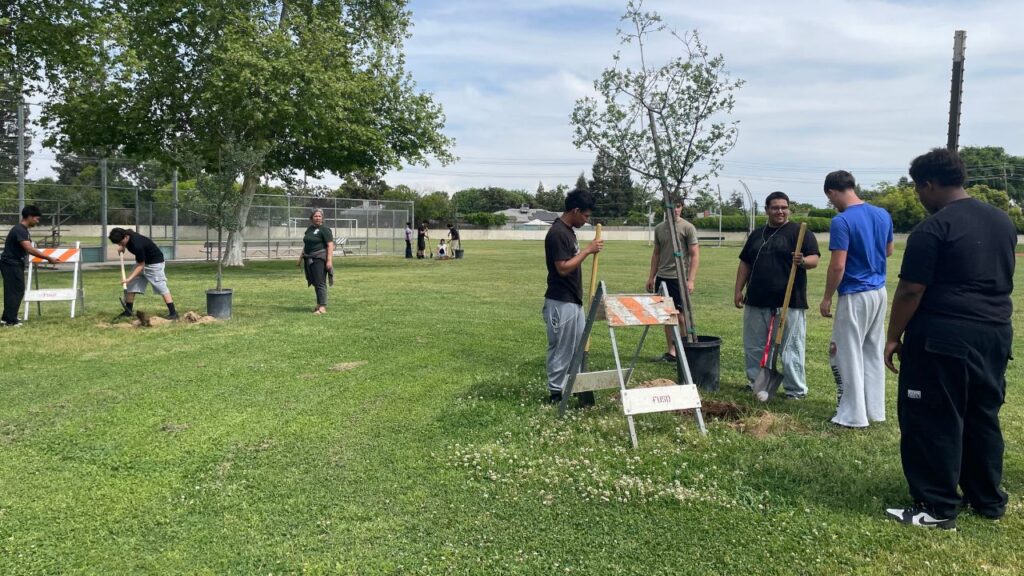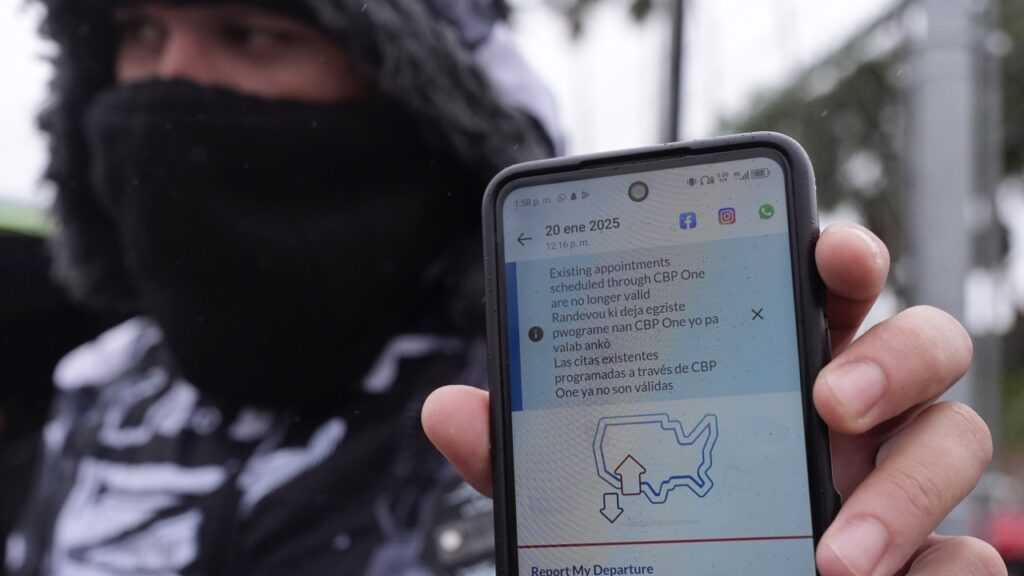Gina Gandolfi, right, and her 10-year-old son Nathan Gandolfi in his bedroom in Highland, April 16, 2025. Gina worries about how President Donald Trump’s cuts to the Department of Education will impact students with special needs if funding is shifted or eliminated from the department. (CalMatters/Kyle Grillot)
Share
|
Getting your Trinity Audio player ready...
|
By Carolyn Jones, CalMatters
This story was originally published by CalMatters. Sign up for their newsletters.
President Donald Trump has promised to keep special education intact, even as he dismantles the federal department that has overseen it for nearly a half century. But some experts and parents in California fear Trump’s policies will imperil the program on multiple fronts, and undoing decades of progress for disabled students.
“Students in special education are equally as important as students who aren’t, but that hasn’t always been the case. The disability community has fought hard for where we are now,” said Gina Gandolfi, a former special education teacher in San Bernardino County whose 10-year-old son has Down syndrome. “What if those services are taken away? Kids with disabilities will go back to being second-class students.”
Last month, Trump said he’s moving special education from the Department of Education, which he’s described as wasteful and inefficient, to the Department of Health and Human Services, under the direction of Robert F. Kennedy Jr. Enforcement of special education laws would likely move to the Justice Department. Although the laws surrounding special education wouldn’t change, there’s likely to be disruptions as the program moves to a new department, especially one not focused on education and that’s undergoing a 20% reduction in its workforce.
More than 40 disability rights groups sent a strongly worded letter to Congress in early April imploring members to preserve special education funding, keep the program in the Department of Education and leave the department intact. The authors said the plan to move special education to Health and Human Services is “short-sighted, insulting and unacceptable.”
Trump has not announced cuts to special education funding, and Congress left its funding intact in the most recently passed budget. But at the same time, Trump has threatened to cut school funding to states — including California — that defy his orders to eliminate diversity programs or scrap protections for transgender students. The federal government currently covers about 10% of California’s total cost for special education.
Beyond school funding, Republicans in Congress are debating cuts to Medicaid, which would have a deep impact on services for students with disabilities and their families. School districts use Medicaid to help pay for speech and occupational therapy and mental health services for students with disabilities. In addition, parents with disabled children rely on California’s regional centers — funded in part by Medicaid — for diagnoses, in-home visits, equipment like wheelchairs and walkers and other services.
Impacts on Special Education Services
Cuts to any of those programs would have a cascading effect that would upend the disability community, said Kristin Wright, former director of special education for California and currently the executive director of prevention, intervention and inclusive practices at the Sacramento County Office of Education.
For example, if families lose services from a Medicaid-funded agency such as a regional center, they may have to quit working to care for their disabled child. That could potentially catapult a family into poverty.
“It’s a fragile ecosystem,” Wright said. “These programs have evolved together. When you pull any one strand away, it affects everything else.”
Wright fears that the changes would set special education back decades. Until the 1970s, when the Individuals with Disabilities Education Act passed, many children with disabilities didn’t attend school at all. And for many years, they were often in separate classrooms, segregated from their classmates without disabilities. Now, in California, most students with disabilities spend the majority of their time in general education classes, with the assistance of aides and other supports, where they tend to do better academically and socially.
“We’ve come so far, moving away from pathologizing people and using a medical model of disability toward a social model, where disability is seen as a natural part of the human condition,” Wright said. “This feels like we’re backpedaling. As a society, we’re going to have to decide what we care about, and how committed we are to educating every student.”

About 14% of K-12 students in California are enrolled in special education, with disabilities ranging from mild learning disorders to severe autism or traumatic brain injuries.
Typically, students receive extra services from therapists, aides and special education teachers, which can be costly. California spent about $13 billion on special education last year, with about 10% coming from the federal government. That doesn’t include money that schools get from Medicaid. If Medicaid is cut, schools would have to find the money elsewhere.
Effects on Schools
Ginese Quann is a special education director for the El Dorado County Office of Education and oversees the Special Education Local Plan Area, a cost-sharing consortium for 464 California charter schools. Quann said she’s not overly worried about the federal changes — yet.
Special education funding has always been in flux, she said, and the state has its own systems for monitoring and enforcing the program. Even if the federal government cuts its enforcement of special education laws, she said, parents will still be able to file complaints with the state.
She’s less sure about the transition to the Department of Health and Human Services. Even in a best-case scenario, there’s likely to be some disruptions in payments or services, she said. In a worst-case scenario, the program will be overseen by people with little expertise in how to educate students with disabilities.
The best she can do, Quann said, is to “try and cushion schools from changes at the federal level, so ideally there’s no impact on students. I see this as our biggest challenge right now.”

But even minor disruptions could be damaging for schools that rely on a smooth-running special education system. One of those schools is the Hanna Academy, a small nonprofit boarding school in Sonoma County that contracts with school districts to serve students with acute behavioral challenges. Federal changes to special education could have lasting effects on students, and jeopardize students’ and staff safety, said principal Courtney Jackson.
The academy, which opened in 1945, serves about 50 students from around California. The students receive extensive therapy, vocational training and academic and life-skills classes, delivered in small groups with numerous teachers and aides who can intervene when students have meltdowns or violent outbursts.
Budget cuts will likely mean fewer adults in classrooms, which could endanger students as well as staff. It also means students won’t get the individual attention they need and their progress will almost certainly drop off, Jackson said.
“We’re dealing with the most delicate population in education. When you start removing services in a careless manner, without a backup plan, it just causes chaos,” Jackson said. “The damage will be so deep, it could take years to fix and be far more expensive.”
Future of Special Education Law
Special education has traditionally had bipartisan support, with champions in both parties. The Trump administration has promised to leave special education unscathed, but that would require continued funding, said Rorie Fitzpatrick, vice president for K-12 systems at the nonprofit research and consulting firm WestEd.
“The biggest concern is the future of IDEA,” Fitzpatrick said, referring to the 1975 legislation that created special education. “Students with disabilities have a right to a free, appropriate public education under the law. But you need well-trained staff and funding to make that happen. If you cut that funding, you’re gutting IDEA by default.”
Gandolfi, whose son has Down syndrome, said special education has made a world of difference for her son, Nathan, a fourth grader in Redlands Unified. He loves his friends in his general education classroom, and gets extra services like speech and occupational therapy, one-to-one classroom support and academic help through special education. Through the local regional center, he attends classes in swimming, drumming and social skills, as well as camps. He loves hip hop dance, movies, singing and his two younger siblings.
“He’s living his best life. He’s full of joy. He looks forward to school every day,” Gandolfi said. “We want him to have a long, purposeful, meaningful life, and having the support of special ed makes that possible.”
This article was originally published on CalMatters and was republished under the Creative Commons Attribution-NonCommercial-NoDerivatives license.
RELATED TOPICS:
Artfully Staged for Takeoff: Fresno Airport Expansion Nears Finish
3 hours ago
Chipotle Tempers Annual Sales Forecast as Dining-out Takes a Hit
3 hours ago
General Motors to Increase Production at Ohio Transmission Facility
3 hours ago
US Justice Department Directs Investigations Over Gender-Affirming Care
3 hours ago
Exclusive: Trump Expected to Sign Order Pushing Training for Skilled Trades
3 hours ago
Kennedy Declares ‘Sugar Is Poison’ While Announcing Ban on Food Dyes
4 hours ago

Five Arrested in Fresno County Robbery Spree. Some Linked to Venezuelan Gang

US Brings First Terrorism Charges Against Alleged Venezuelan Gang Member

Artfully Staged for Takeoff: Fresno Airport Expansion Nears Finish

Chipotle Tempers Annual Sales Forecast as Dining-out Takes a Hit

Wired Wednesday: What’s the Future of Fresno Unified and the Superintendent Position?

Zakaria Draws Parallels Between Trump’s Tariffs, Failed 1930s Economic Policies













